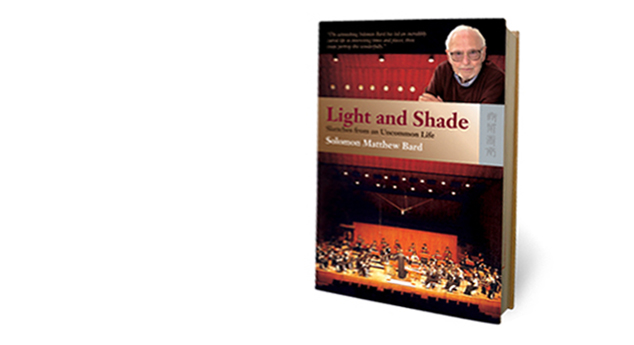|
Solomon Bard's life reads like a novel, which is perhaps appropriate given that he has now committed his adventures to paper.
Born in Siberia in 1916, he and his family moved to Harbin, China, in 1924 after their house was appropriated by the Soviet State. There his musical talent, which was to play a prominent role in his life and career, first blossomed. However, he chose to pursue a more practical career and, in the 1930s, followed the well-trodden Russian émigré's road to Shanghai where he studied English for entry to the University of Hong Kong, arriving here in 1934.
A cholera outbreak and one of the worst typhoons ever to hit the territory, in 1937, read like omens of the traumas to come. In 1939 War was declared and Mr Bard joined the Hong Kong Volunteers Field Ambulance Unit. When the colony fell to the Japanese in 1941, he was interned as a Prisoner of War at the Sham Shui Po camp, where he employed his medical skills to secretly treat fellow prisoners.
After the war, and a few years in the UK, he returned to Hong Kong and his alma mater to found the University's medical service. Retirement, in 1976, provided an opportunity to follow his twin passions of music and archaeology. From 1976 to 1983 he served as executive officer of the Antiquities and Monuments Office and in his spare time he conducted the Hong Kong Philharmonic Orchestra and, from 1983 to 1987, served as assistant music director of the Hong Kong Chinese Orchestra.
Mr Bard's life and experiences are vividly recounted in a series of essays that make such entertaining reading one wonders why writing hasn't played a more prominent role in his life.
Earlier this year, the remarkably youthful Mr Bard, now 91, returned to Hong Kong to share his memories with an audience at HKU's Main Library.
The University in the 1930s appears to have resembled a holiday camp rather than an educational institution. "When I arrived at my hostel, in 1934 as a first-year medical student, there were quite a number of students sitting around, playing cards, not attending lectures," he recalls. "The atmosphere was very casual, the attitude was that you didn't have to attend lectures, they weren't compulsory, you didn't even have to pass exams for that matter.
"The overseas students – Russians, Chinese, Sri Lankans, Malaysians – would stay on and on. Daddy would send the money and they would just stay here. It was a lot of fun and everybody tried to enjoy themselves very well.
"At that time there were only three faculties – Medicine, Engineering and Arts – and about 450 students. Out of the 45 students who started first-year medicine with me, only 15 passed on to the second year, and only five graduated. The record at the time was ten years spent on a three-year course!"  Light and Shade: Sketches from an Uncommon Life by Solomon Matthew Bard, published by Hong Kong University Press.
Light and Shade: Sketches from an Uncommon Life by Solomon Matthew Bard, published by Hong Kong University Press. |
|
